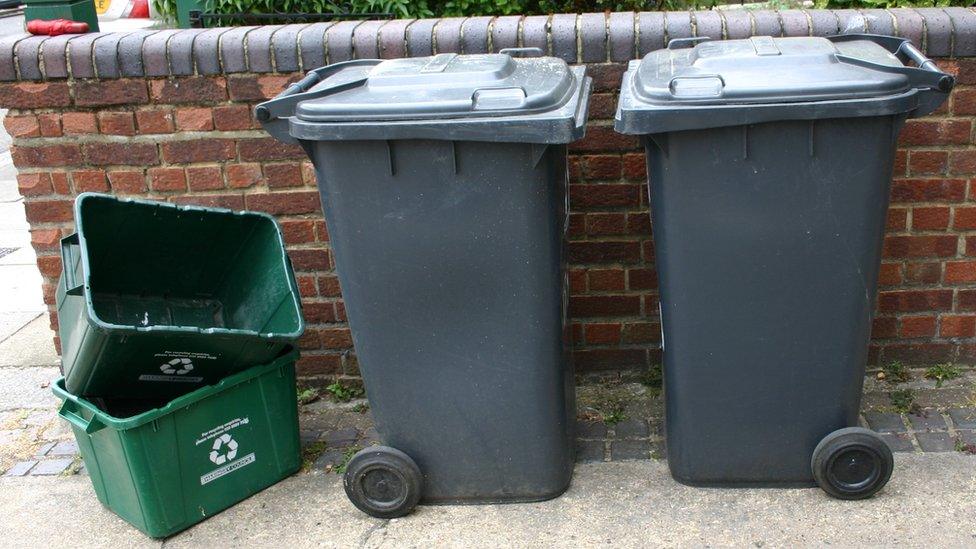Robot with 'brain' near Cheltenham sorting plastic waste
- Published
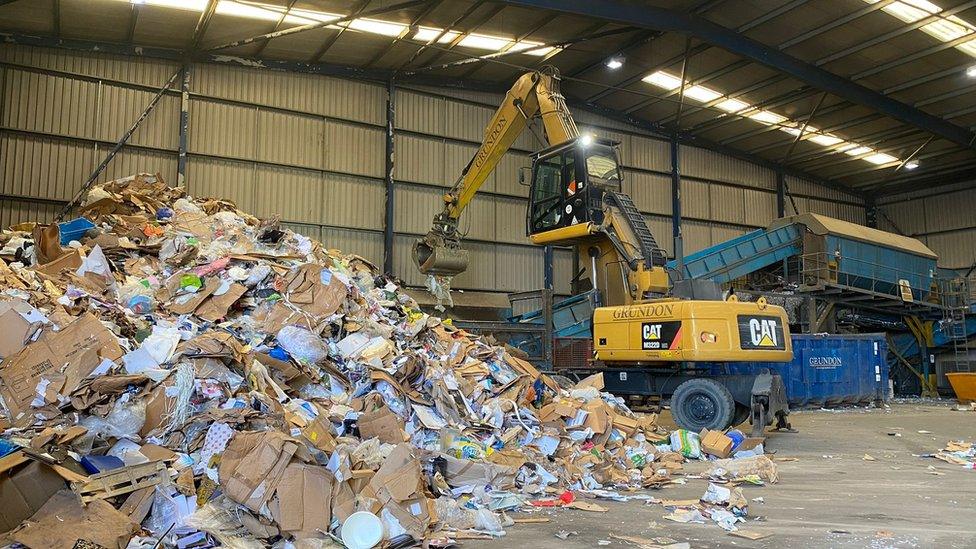
Grundon hopes AI technology will increase the volume of recyclable material it can capture
A waste management company is trialling the use of artificial intelligence (AI) to sort plastic waste.
Grundon has invested in a robotic arm at its Bishop's Cleeve site in Gloucestershire which can pick rubbish at "a human rate".
The Zen Robotics machine learns to remember plastic in a similar way to which humans learn to recognise items.
The company hopes the technology will increase the volume of recyclable material Grundon can capture.
The 'Fast Picker' arm is supplied by Helsinki-based supplier of robotic waste separation technology - Zen Robotics.
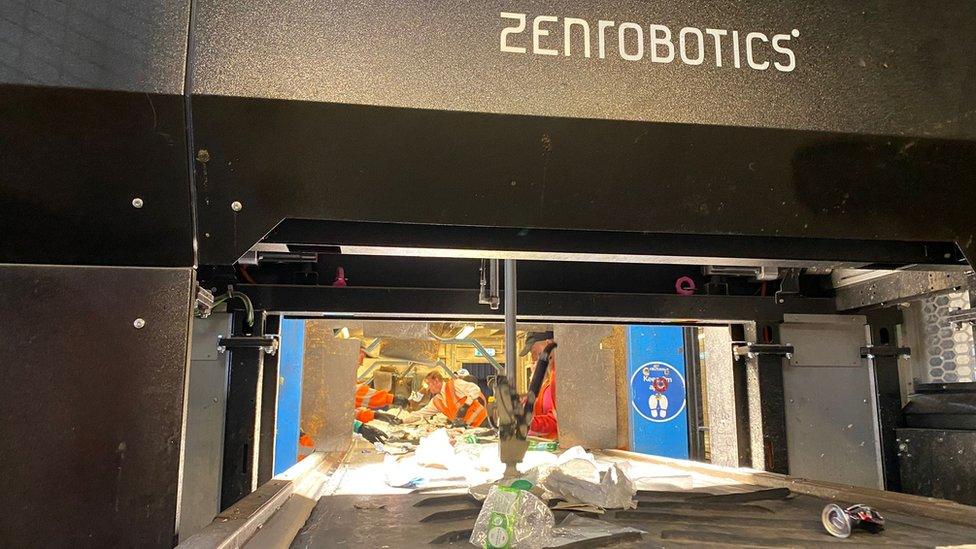
The robot picks items that it recognises and deposits them down one of two chutes
It works by scanning rubbish on a belt before deciding which items to pick - the robot then has an "in-belt brain" of information which it retains through training.
Over time, as more items are picked, the "brain" identifies more waste streams, storing the information in its AI memory.
Government statistics show the UK generated almost 44 million tonnes of commercial and industrial waste in 2018.
The latest available estimate for England - in 2020 - was almost 34 million tonnes.
Once plastic trials are complete, Grundon will begin training the robot to pick steel or aluminium cans, paper and cardboard.
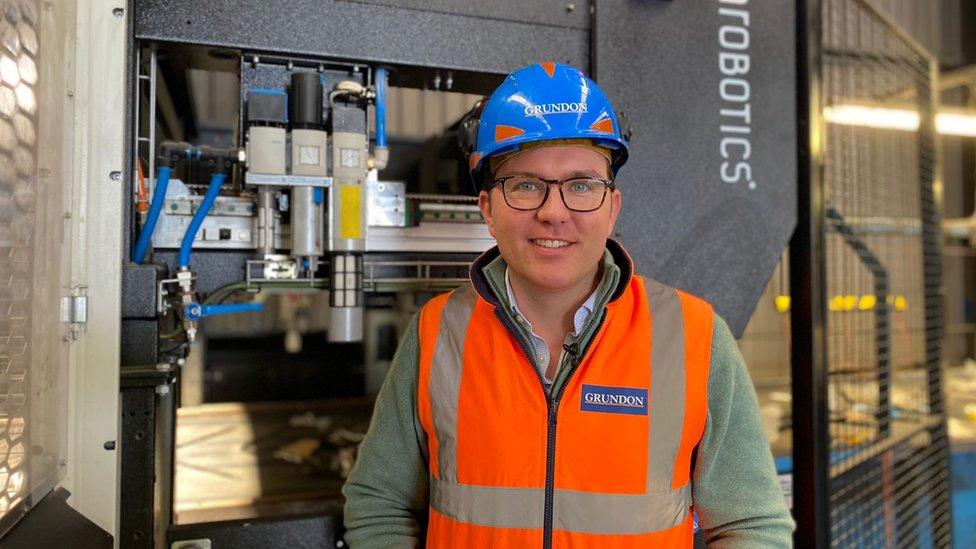
Grundon aims to develop technology to eventually have a fully autonomous sorting plant
Ed Fagan, Grundon's head of projects, said: "Both optical and robotic sorters can be deployed alongside humans in our waste sorting facilities.
"But where we can really see robotic sorters making a difference is in environments which are less well suited for humans, such as the sorting of contaminated waste or working in areas with high levels of noise and dust."

Follow BBC West on Facebook, external, Twitter, external and Instagram, external. Send your story ideas to: bristol@bbc.co.uk
Related topics
- Published3 July 2022

- Published15 October 2022
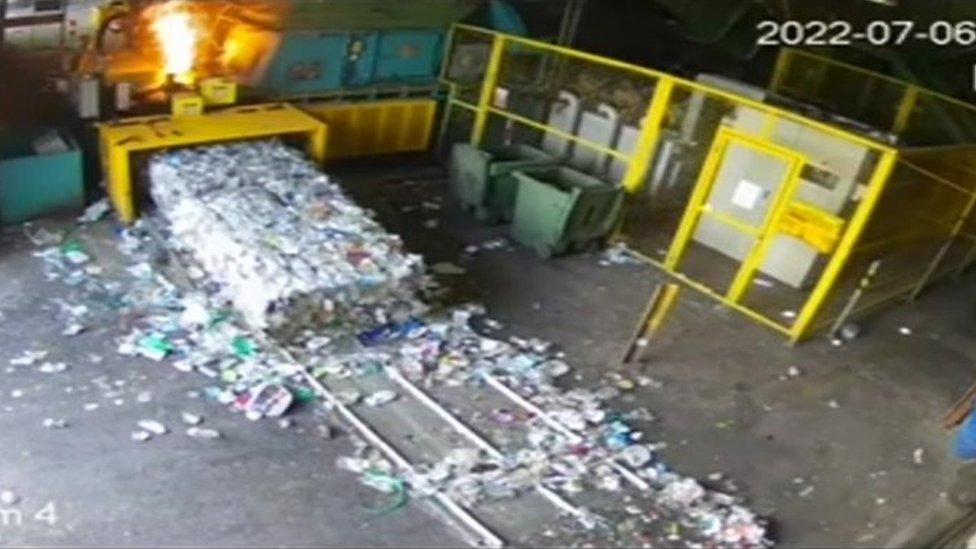
- Published11 October 2022
